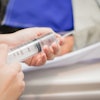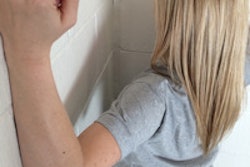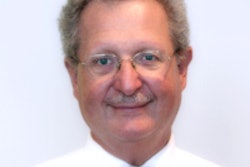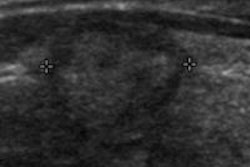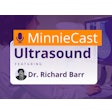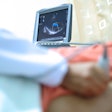Dear AuntMinnie Member,
Tennis elbow isn't just for tennis players. If you're a sonographer, you know that you can become afflicted with this painful condition, caused by overuse related to repetitive movement on the job.
Fortunately, the next installment of our Making a Difference as a Sonographer series is here to help. In our newest article, Doug Wuebben and Mark Roozen discuss steps you can take to alleviate tennis elbow.
Training and stretching are great ways to start. A brace can also be used, but make sure you're using it right. Find out how by clicking here, or visit our Ultrasound Digital Community at ultrasound.auntminnie.com.
Google and breast density
In other news, what does Google have to do with breast density? Quite a lot, it turns out.
Researchers from the University of Michigan put the search engine giant's Google Trends feature to work to gain more insight into public interest in breast density legislation. They correlated searches for the term "dense breast" with legislative activity and news coverage related to increased cancer risk from dense breast tissue.
What's the point? The study indicates the value of alternative data sources beyond just randomized controlled trials, according to study co-author Dr. Ruth Carlos. Read more by clicking here, or visit our Women's Imaging Digital Community at women.auntminnie.com.
Slashing CT dose
Finally, we close this week with an article that could represent a light at the end of the long tunnel medical imaging is facing over radiation dose.
Researchers from Ohio went the extra mile to reduce radiation dose from CT scans in their tertiary-care medical center, implementing a range of tools, from tube current modulation to iterative reconstruction, in a process that took two years.
The group then set out to calculate how much radiation dose they saved, turning in dose reductions of as much as 52% for some CT procedures. But they didn't stop there: They then calculated how many radiation-induced cancers -- and patient deaths -- would be prevented by the steps.
How might the study affect the ongoing debate over the risks of medical radiation? That's not for us to say, but you can learn more about the research by clicking here, or by visiting our CT Digital Community at ct.auntminnie.com.



